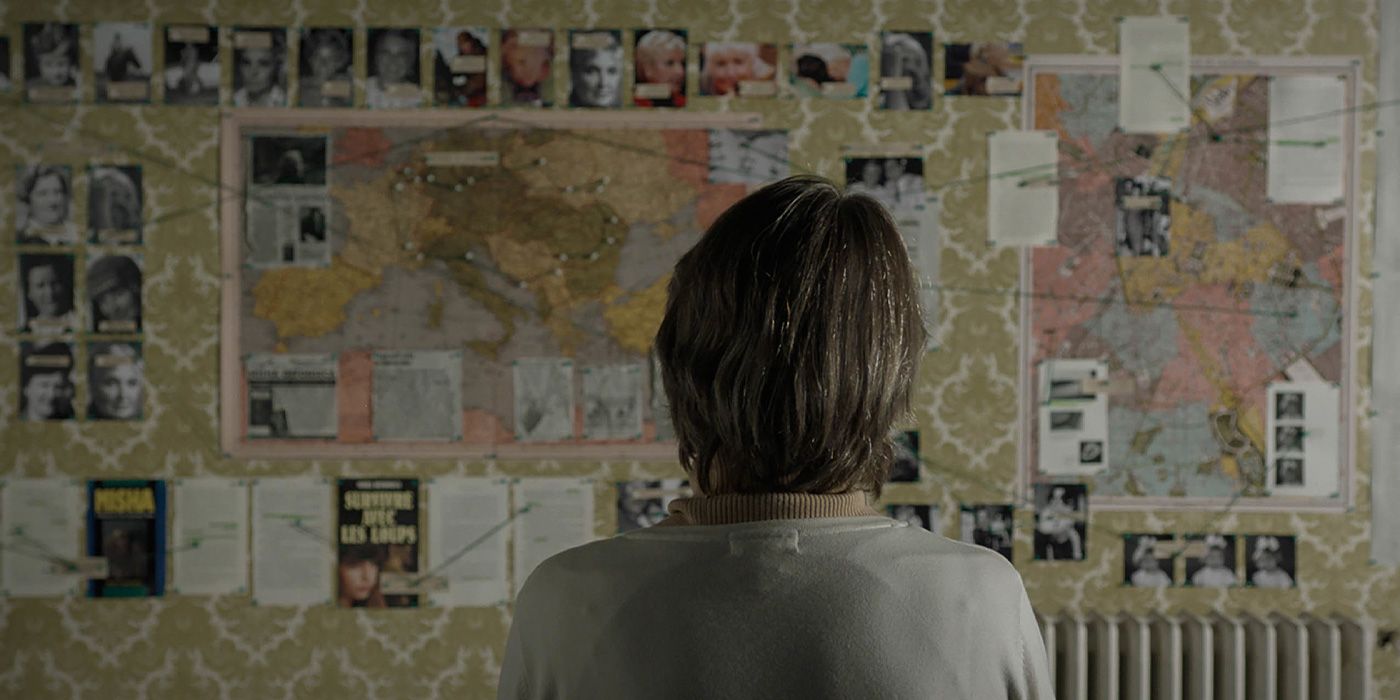[Editor's note: This is a repost of our review from the 2021 Sundance Film Festival]
When we’re told to believe the accounts of people who suffered severe trauma, do we believe them out of empathy, or out of our desire to feel better about ourselves? If someone claims to be a Holocaust survivor, and then offers us a tale of redemption and overcoming adversity, then do we believe them because they’re a Holocaust survivor, or because they’re offering us a feel-good tonic to the horrors of the Holocaust? With his smart, meticulous documentary Misha and the Wolves director Sam Hobkinson explores an audacious story that appeals to our need for uplift and politeness rather than investigating far-fetched claims. While the original claim will have you wondering how anyone could believe such a tale, Hobkinson does a terrific job laying out exactly why we believe such narrators and why the best way to honor survivors is with the truth rather than saccharine narratives.
Misha Defonseca lives in the small town of Millis, Massachusetts. During the Day of Remembrance at her synagogue, she gets up and tells an incredible story about how when she was a 7-year-old girl living in Belgium, her parents were arrested by the Nazis and she was forced to live with a Catholic family. She chose to run away and head east to Germany to find her missing parents. While making her trek through the forests to avoid detection, she came across a pack of wolves and joined them. Her remarkable tale caught the attention of small publisher Jane Daniel, who felt that she had a big success on her hands, and encouraged Defonseca to write a memoir. However, just as Defonseca was gearing up to promote the book on Oprah, the author backed out, and then sued Daniel for losses. The jury ruled against Daniel in the amount of $22.5 million, which left Daniel with only one recourse: if Defonseca’s story was false, that would overturn the ruling.
If someone came up to you and claimed they were a Holocaust survivor, you would not be inclined to doubt them. If anything, it’s simply not in our nature to doubt people who reveal serious traumatic experiences. But if someone were audacious enough to lie about being a Holocaust survivor, where would that lead? How would they be greeted? What does our need to believe an incredible story say about our desire for particular narratives? Hobkinson isn’t saying, “Don’t trust people who say they’re Holocaust survivors,” but rather exploring why Defonseca’s story was deemed more worthy than others when every story of Holocaust survival is exceptional. And the answer seems to be that Defonseca had an uplifting quality to her narrative because it was about a little girl who, when thrown to the wolves literally and figuratively, is taken in and protected by the forces of nature. It takes one of the most horrifying atrocities of recent history, and says, “But here’s a little good that came out of it so the world must not be all bad.”
I love that with his calm, direct approach, Hobkinson has crafted a stunning look at the narratives we choose to tell ourselves and how reality is often messier and more complicated than an uplifting tale might offer. For his own part, Hobkinson never lets his own narrative off the hook. Jane Daniel is not the hero of this story. She only pursued the truth when it became financially necessary to do so, and had she not fallen out with Misha, then Daniel would have profited off her ignorance without doing any further investigation into an outlandish tale. Publishers, unlike major news outlets, do not need to employ fact checkers, but Daniel should have respected Holocaust survivors enough to make sure that she could verify a story meant to stand alongside those of other survivors.
If there is a hero in Misha and the Wolves, it’s Belgian genealogist and Holocaust survivor Evelyne Haendel, who has a story not entirely dissimilar from Misha’s about being a hidden child in Belgium during the war and losing your family. But there are no friendships with wolves in Haendel’s story. There’s no book deal. There are only hard, unpleasant truths about the randomness of survival, and yet even there she took the search for family and turned it into a career. That may not be a story that moves millions of paperbacks, but at least it’s honest.
Misha and the Wolves isn’t a survival story but a cautionary tale. I won’t spoil the various twists and turns the film makes (although I think it’s pretty obvious that any tale involving “I was a seven-year-old who lived with wolves in the wilderness,” is dubious at best), but I was struck by and admire Hobkinson’s clinical approach in exploring our need for uplifting stories that can blind us to the complexities of humor behavior. Misha and the Wolves demands not only more skepticism of its audience, but also introspection.
Rating: A-
Misha and the Wolves is now available on Netflix.


